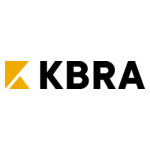KBRA Releases Research – Inflation Reduction Act Reinvigorates the U.S. Energy Transition
NEW YORK–(BUSINESS WIRE)–#KBRA–KBRA releases research that examines the Inflation Reduction Act (IRA) and its effect on the U.S. energy sector, with a focus on how the bill aims to reduce the country’s greenhouse gas (GHG) emissions by boosting clean energy investments. As we noted in a recent research report, high energy prices have slowed the pace of the U.S. energy transition plans. With the IRA, the U.S. is reinvigorating energy transition plans and bolstering its commitment to Paris Agreement climate goals. In KBRA’s view, this legislation sends a signal to the rest of the world that the U.S. is ready to be a leader in the global effort to address climate change.
Key Takeaways
- The IRA is a major piece of legislation that evidences the U.S.’s commitment to reducing its emission profile. The act is expected to reduce GHG emissions by roughly 40% from 2005 levels by 2030. The act will incentivize increasing renewable energy assets and spur development of clean energy technologies.
- Among the key incentives under the IRA is the introduction of a new 10-year, direct-pay investment tax credit for clean energy development. By extending the tax credits far into the future and simplifying the process to claim them, the act lowers the barrier to long-term financing of renewable energy assets.
- While renewable energy industry is set to be the primary beneficiary under the act, traditional energy companies also benefit under the bill, much more so than initial proposals indicated.
Click here to view the report.
Related Publications
- High Energy Prices and the Sustainable Energy Transition
- Auto Loan ABS: Greenhouse Gas Score Update
- Western Sanctions on Russia Weigh on Oil Security Fears and Rising Prices
- Electric Utilities Slash Coal Usage
About KBRA
KBRA is a full-service credit rating agency registered in the U.S., the EU, and the UK, and is designated to provide structured finance ratings in Canada. KBRA’s ratings can be used by investors for regulatory capital purposes in multiple jurisdictions.
Contacts
Shane Olaleye, CFA, Senior Director, Corporates
Power, Energy, and Renewable Finance
+1 (646) 731-2432
shane.olaleye@kbra.com
Rene White, Senior Analyst, Corporates
+1 (646) 731-2451
rene.white@kbra.com
Andrew Giudici, Senior Managing Director, Global Head of Corporate, Project, and Infrastructure Finance
+1 (646) 731-2372
andrew.giudici@kbra.com
Business Development Contact
Jason Lilien
+1 (646) 731-2442
jason.lilien@kbra.com



